Somalia is facing a catastrophic hunger crisis, with millions of people at risk of starvation. The crisis is the result of a combination of factors, including a severe drought, conflict, and economic instability.
The drought has been the worst in 40 years, and has devastated crops and livestock. The conflict in Somalia has also made it difficult to reach people with food assistance. And the country’s economy is in a state of collapse, making it difficult for people to afford food.
As a result of these factors, more than 6.5 million people in Somalia are facing acute food insecurity. This means that they do not have enough food to eat, and are at risk of malnutrition and starvation. Among the most affected are children, who are more vulnerable to the effects of hunger.
The hunger crisis in Somalia is a major humanitarian emergency. It is a threat to the lives of millions of people, and it is a challenge to the international community. The world must act now to prevent a famine in Somalia.
BBC short documentary about the 30 year war in Somalia (Source)
There are a number of things that can be done to address the hunger crisis in Somalia. First, the international community must provide more funding for humanitarian assistance. The World Food Programme (WFP) is the largest provider of food assistance in Somalia, and it is in desperate need of funding. Second, the conflict in Somalia must be resolved. The fighting is preventing food assistance from reaching people in need, and it is also displacing people from their homes. Third, the Somali economy must be rebuilt. The country’s economy is in a state of collapse, and this is making it difficult for people to afford food.
The hunger crisis in Somalia is a complex problem, but it is one that can be solved. With the right support, the international community can help to avert a famine in Somalia and save millions of lives.
Here are some ways that you can help to address the hunger crisis in Somalia:
- Donate to a humanitarian organization that is providing food assistance in Somalia.
- Contact your elected officials and urge them to support increased funding for humanitarian assistance in Somalia.
- Raise awareness about the hunger crisis in Somalia. Talk to your friends, family, and community about the issue and what can be done to help.
Every little bit helps. By taking action, you can help to make a difference in the lives of millions of people in Somalia.
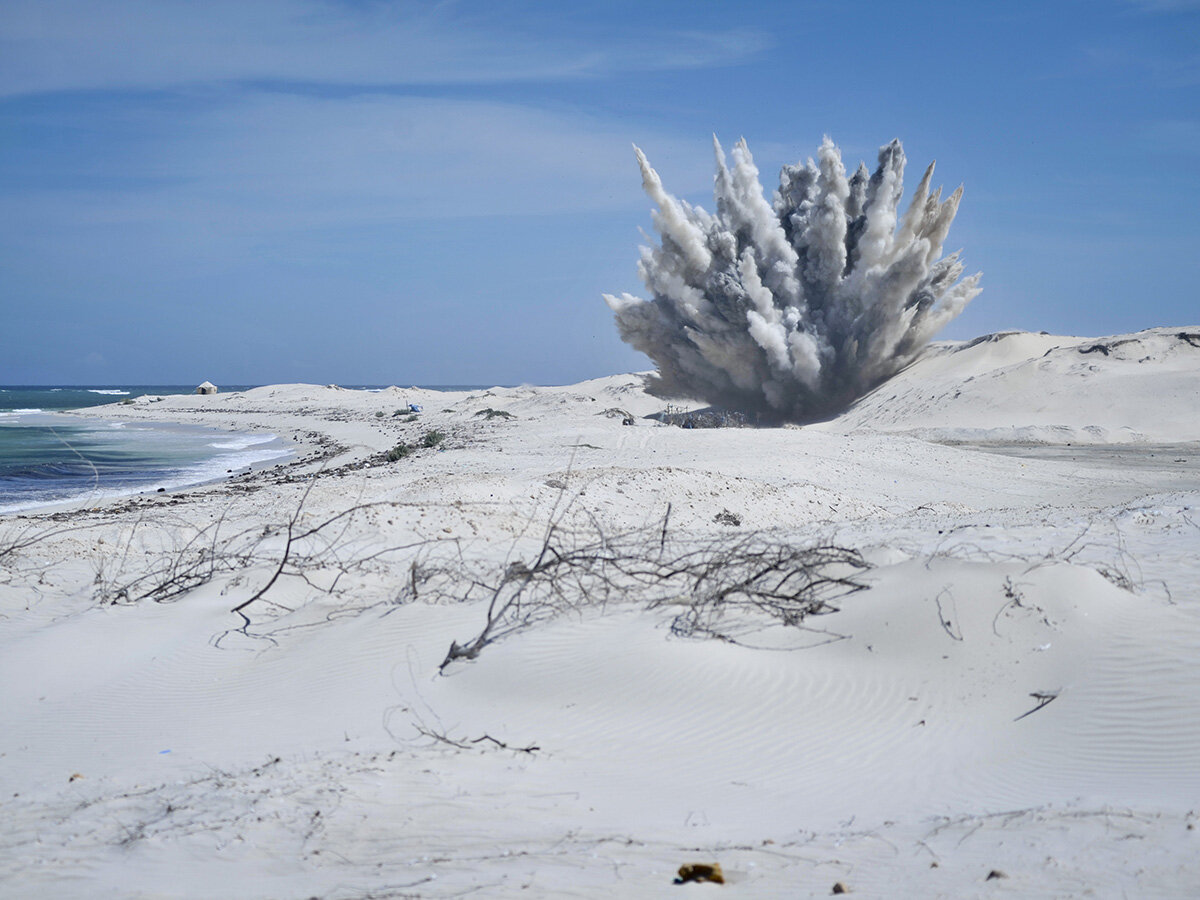
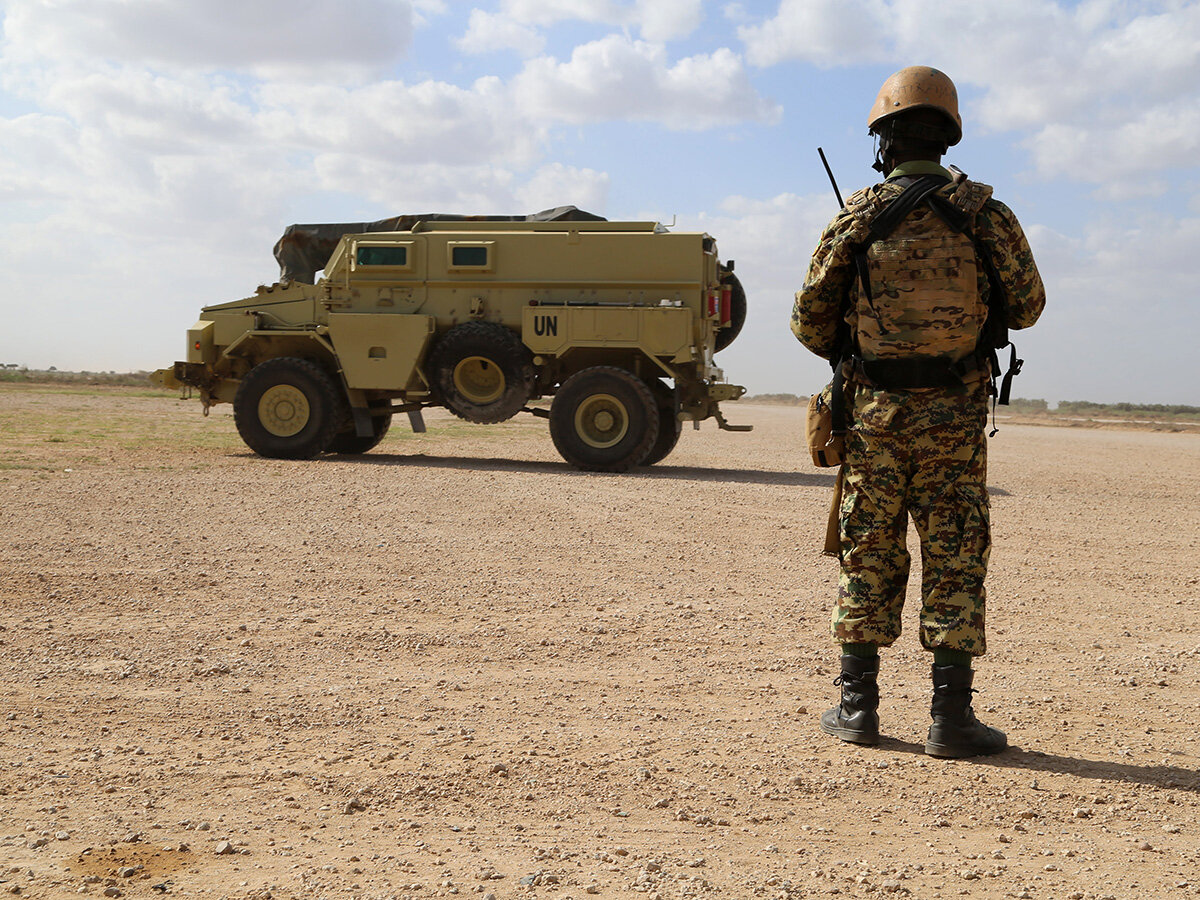
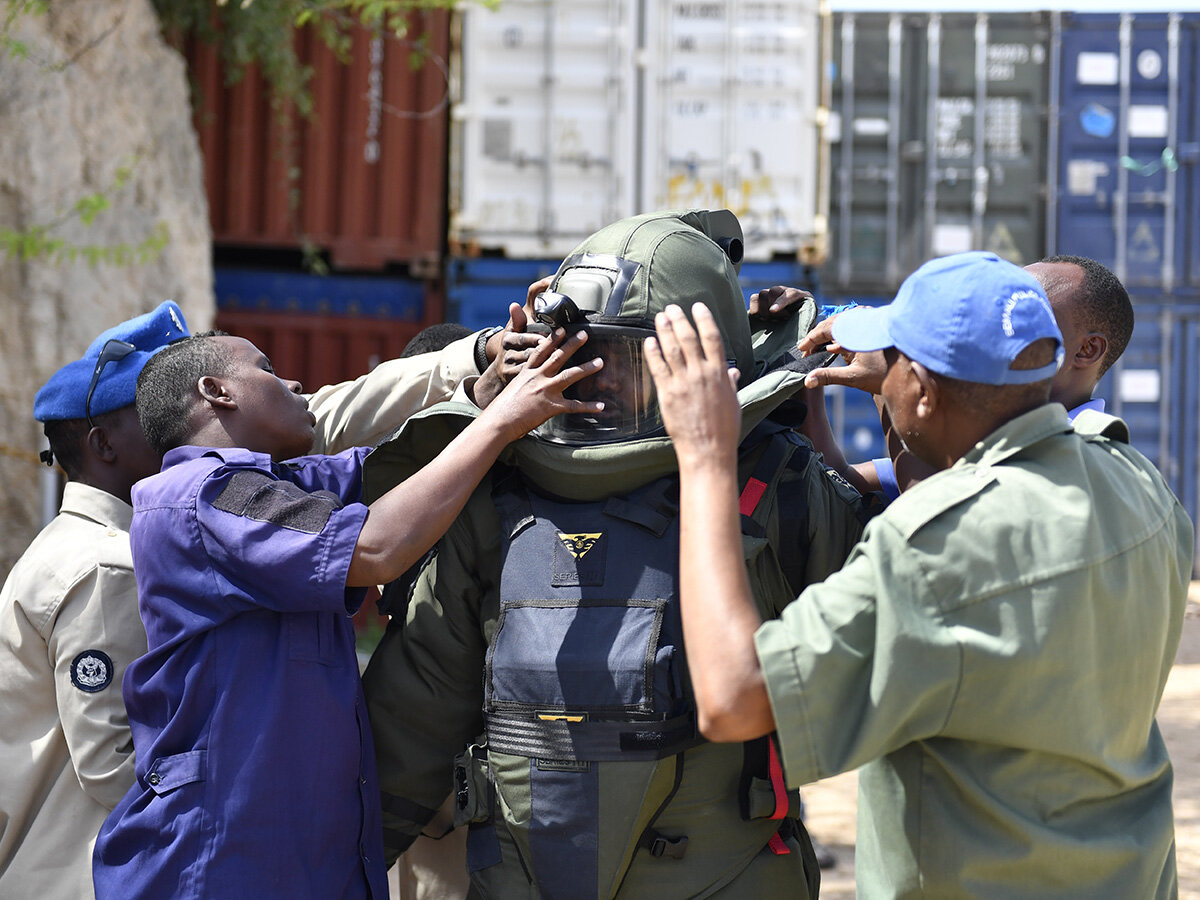
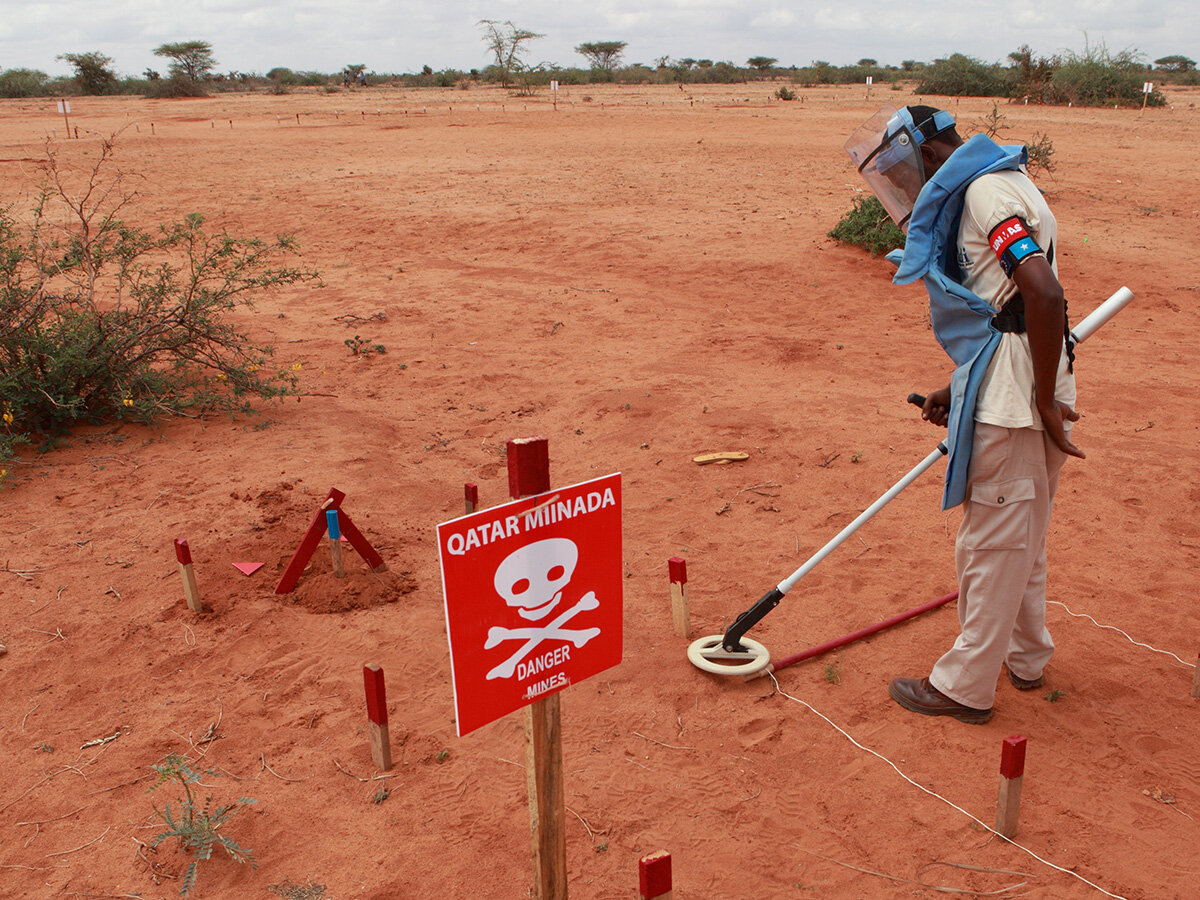






From the United Nations website about Somalia (Source)
Related UN global goals
- Sustainable Development Goal 2 (SDG 2): Zero Hunger
SDG 2 aims to end hunger, achieve food security, improve nutrition and promote sustainable agriculture. It also aims to ensure that people have regular access to sufficient, safe, affordable and nutritious food that meets their dietary needs and food preferences for an active and healthy life.
- Sustainable Development Goal 17 (SDG 17): Partnerships for the Goals
SDG 17 recognizes that the goals can only be achieved through strong partnerships between governments, businesses, civil society, and the international community. It calls for the mobilization of financial resources, technology transfer, capacity building and the sharing of best practices.
United Nations security council meeting over action in Somalia. (Source)
Global hunger
According to the Food and Agriculture Organization of the United Nations (FAO), 828 million people did not have enough to eat in 2021. This represents a 15% increase from the pre-pandemic level of 728 million in 2019. The increase in hunger is due to a number of factors, including the COVID-19 pandemic, the war in Ukraine, and climate change.
The COVID-19 pandemic has had a devastating impact on food security. The pandemic has led to job losses, income declines, and disruptions to food production and distribution. As a result, many people have been unable to afford food or have lost access to food.
The war in Ukraine has also had a significant impact on food security. Ukraine is a major exporter of wheat, corn, and sunflower oil. The war has disrupted exports, leading to higher food prices and reduced availability of food.
Climate change is also a major threat to food security. Climate change is causing more extreme weather events, such as droughts, floods, and heat waves. These events can damage crops and livestock, making it more difficult to produce food.
The world must act now to address the growing problem of hunger. Governments, businesses, and civil society must work together to mobilize resources and implement solutions that will help to end hunger and achieve food security for all.
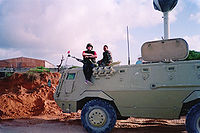
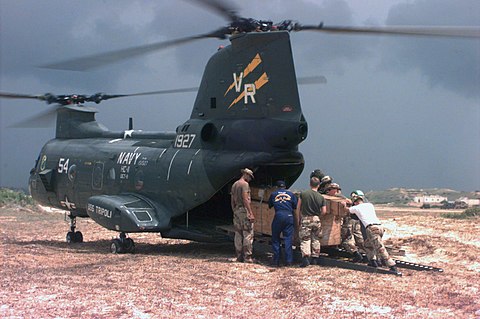
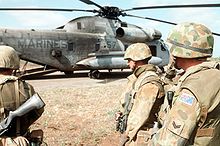






From the Wikipedia article about United Nations Operation in Somalia I (Source)
Intervention by the UN
Things that worked
- Providing food assistance: The UN has been providing food assistance to people in Somalia since the early 1990s. The World Food Programme (WFP) is the largest provider of food assistance in Somalia, and it provides food to millions of people every year.
- Improving water and sanitation: The UN has also been working to improve water and sanitation in Somalia. This is important because access to clean water and sanitation is essential for preventing the spread of disease.
- Promoting economic development: The UN has also been working to promote economic development in Somalia. This is important because economic development can help to create jobs and improve people’s access to food.
- Building peace and security: The UN has also been working to build peace and security in Somalia. This is important because peace and security are essential for creating an environment where people can thrive.
The UN has made some progress in addressing the hunger crisis in Somalia, but there is still much more work to be done. The UN needs continued support from the international community to help it achieve its goals.
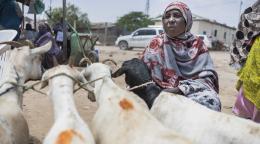
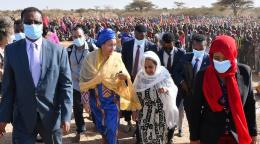
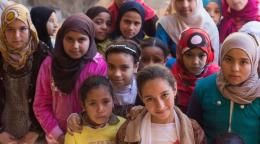







Images from United Nations website about SDG work in Somalia (Source)
Things that didn’t work
- Military intervention: The UN has tried to intervene militarily in Somalia on several occasions, but these interventions have been largely unsuccessful. The UN peacekeeping mission in Somalia (UNISOM) has been plagued by violence and insecurity, and it has been unable to effectively protect civilians or bring peace to the country.
- Sanctions: The UN has also imposed sanctions on Somalia in an effort to pressure the country’s leaders to negotiate a peace agreement. However, the sanctions have had little impact, and they have only served to further impoverish the Somali people.
- Development aid: The UN has also provided billions of dollars in development aid to Somalia. However, much of this aid has been wasted or diverted by corrupt officials. As a result, the Somali people have seen little benefit from this aid.
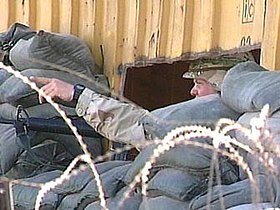
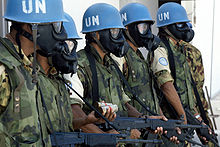
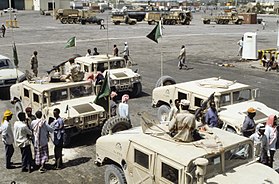
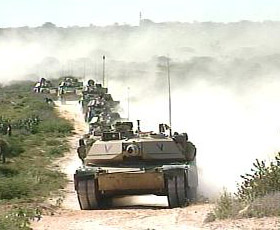


From the Wikipedia article about United Nations Operation in Somalia II (Source)
The UN has made some mistakes in its efforts to address the hunger crisis in Somalia. However, it is important to remember that the UN is a complex organization with limited resources. It is also important to remember that the situation in Somalia is very difficult. The country is plagued by violence, insecurity, and corruption. Despite these challenges, the UN is committed to helping the Somali people.